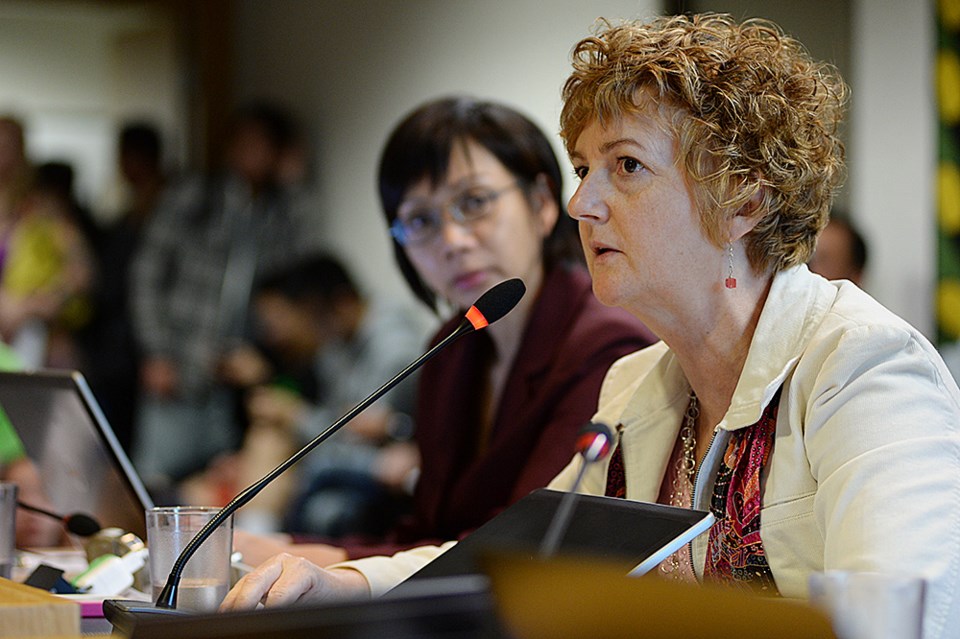The Vancouver School Board will spend more time working on a revised sexual orientation and gender identity policy in response to copious phone calls, letters and emails received from parents.
An April 10 memo from VSB associate superintendent Maureen Ciarniello said the policy could go to the board for approval May 20.
But after more than 30 delegations registered to speak at the VSB’s education and student services meeting, May 14, Ciarniello said staff will reword segments of the policy and the committee will review it again, June 11 before a recommendation for approval by the board.
“Parents are feeling that we’re forcing this on students and parents, which is not the case,” said Ken Clement, trustee and chairperson of the education and student services committee.
Ciarniello and Stephanie Lofquist, the board’s anti-homophobia and diversity mentor, note the policy has been in place since 2004 and is being revised to reflect practices by local, provincial and national agencies.
It will put the support for trans youth and their families, which largely occurs in schools already, into writing.
The VSB’s PRIDE Advisory Committee, which includes teachers, support staff, district staff, principals or vice principals, representatives from the District Parent Advisory Council and from the community, has revised the policy over two years.
Cheryl Chang, chairperson of the Lord Byng secondary parent advisory council, who wrote an open letter to the trustees that voiced her and other parents’ concerns, contends the draft revised policy is “seriously flawed” because appropriate medical and mental health professionals weren’t consulted in its development and those who specialize in gender identity don’t agree on how children experiencing gender identity dysphoria should be treated. She wants more consultation with medical professionals and parents.
“There’s no question that we need a good policy that will ensure that all children are safe and that they all feel comfortable in using the facilities, the schools, etc.,” Chang said. “But to just sort of say we’re going to take a bunch of activists on one side of the spectrum and say they can make up a policy and we’ll impose it on everybody and it doesn’t matter what anyone else thinks, is inappropriate.”
Lofquist said a representative from Vancouver Coastal Health participates on the PRIDE committee but wouldn’t specify that person’s profession.
The policy statement: “Students’ rights to discuss and express their gender identity and/or gender expression openly and to decide when, with whom, and how much private information to share, will be recognized and protected,” could be reworded.
Some parents worry this means they wouldn’t be kept in the loop about what’s happening with their child, said Ciarniello.
But she notes schools have been providing students such confidentiality for years, say about sexual activity.
A school staffperson would likely recommend the student talk to their parents and doctor, but wouldn’t break their confidence.
Lofquist said schools aim to collaborate with families of lesbian, gay, bisexual, trans and queer youth, who experience more verbal and physical harassment at school that other kids and are four times more likely to attempt suicide, not to keep parents in the dark.
The education and student services meeting May 14 starts at 5 p.m. at 1580 West Broadway.
crossi@vancourier.com
twitter.com/Cheryl_Rossi



